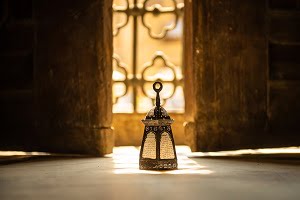WHO Recommends Safe Ramadan Practices in Context of COVID-19
- Updated on: Jul 29, 2024
- 4 min Read
- Published on Apr 22, 2020

Safe Ramadan Practices in the Context of COVID-19
During the month of Ramadan, Muslim families and friends come together to break their fast during iftar and also assemble for meal at Suhoor. Suhoor refers to the pre-dawn meal taken before fasting begins for the day. Suhoor and Iftar are particular times of gatherings on meals.
This year Ramadan is starting at a time when the COVID-19 pandemic continues to affect the world. The coronavirus disease transmission occurs when someone comes in contact with an infected person as the virus can spread through respiratory droplets and contaminated surfaces. To control this transmission, several countries have implemented social distancing guidelines in public health concern.
The safety measures issued by the World Health Organization (WHO) are also aimed for public health concern during Ramadan considering COVID-19 global effect. These WHO guidelines are summarized for a quick review hereafter.
Make Informed Decisions for Organizing Religious and Social Gatherings
WHO has stated that cancellation of social and religious gatherings should be taken seriously. The organization has recommended that any decision on social and religious gatherings either to cancel or proceed should be well informed and based on the risk of standardized risk assessment practices. For example:
- If social gatherings are required to be canceled, every mode to transmit this information should be used and people must be informed well.
- If Ramadan gatherings are allowed to proceed, proper preventive measures for COVID-19 should be implemented according to specific country and regional guidelines.
- Religious leaders and faith-based communities should actively participate in early decision making on social gatherings so that they could communicate decisions affecting Ramadan events.
- National health agencies should be considered for information and advice on social distancing and other preventive measures.
Advice for Social and Religious Gatherings
Following suggestions are provided for maintaining physical distancing. These include:
- Maintain physical distancing by making a gap of at least 1 meter (3 feet) between people at all times.
- Avoid coming in contact with each other and practice culturally- and religiously-sanctioned greetings such as waving, nodding and placing the hand over the heart.
- Avoid going to places where people are gathered for Ramadan activities such as entertainment venues and markets.
Advice for People Having High Risk of COVID-19
People of old age or having some other chronic health conditions are at high risk of COVID-19. The following pieces of advice are for people having a high risk of COVID-19.
- Advise people to avoid attending events and to follow national guidelines to manage symptomatic cases if they showed any symptoms of COVID-19.
- Urge older people and anyone who is having chronic medical issues to avoid physical gatherings and to take extra precautions.
Also Read: Coronavirus Disease: Safety and Precaution for Heart Patients
Also Read: Coronavirus Infection Risk in Asthma Patients
Mitigation Measures for Social Gatherings
The following guidelines should be followed in every gathering occurring during Ramadan events such as prayers, pilgrimages, and iftar events.
- Try to arrange events outdoors if possible (if allowed by the administration) in open and large spaces. If in any case it can’t be managed, then indoor venue should be picked so that it is spacious and has adequate ventilation and airflow to maintain social distancing.
- Reduce the time of events as much as possible to avoid potential exposure.
- Maintain physical distance among attendees while doing anything at the event including during praying, performing wudu and in areas of shoe storage.
- Try to control the number and flow of people entering, attending and moving from pilgrimage sites or other venues to ensure social distancing all the time.
- Maintain physical distancing while offering zakah or sadaqat or charity to the needy people.
- Serve packaged foods while maintaining social distancing and organize them in large places to ensure physical distancing throughout the whole cycle (collecting, packaging, storing and distribution).
Promoting Healthy Hygiene and Cleanliness in Worshipping Sites
Muslims usually perform wudu which is the religious practice before performing religious prayers to maintain personal hygiene.
Following measures should also be considered at all pilgrimage places or venues where religious practices are going on:
- Make sure that hand washing facilities are equipped with soap and water. An alcohol-based sanitizer should also be present at the entrance gate and inside the mosques.
- Proper safe disposal of waste management should be there in all mosques.
- Maintain cleanliness in worship sites and buildings.
- Ensure proper cleaning of venues before and after each event with detergents and disinfectants.
- Always clean frequently used objects such as light switches, doorknobs and stairs railings with sanitizers and detergents.
- Provide visual displays of advice on social distancing, hand sanitization and general preventive measures on COVID-19.
- Do not visit mosques or other religious places if local government has issued any specific advice for it. Prayers should be done inside while staying at homes in such cases.
Well Being of People Around You
Ensure well being of people around you and yourself and eat a healthy diet during the month of Ramadan.
- No studies have been performed to know the risk of infection during fasting. Healthy people can perform fasting as they did in previous years. On the other hand, COVID-19 patients may need to consider a consultation of their doctors regarding fasting.
- Due to COVID-19 pandemic, many people are restricted going outside by their local administration. But if restrictions allow, always maintain social distancing and proper personal hygiene. People should perform indoor physical movements in place of outdoor activities. Maintain a healthy and nutrition-rich diet and hydration during Ramadan.
- Avoid the use of tobacco in any case, especially during the month of Ramadan and the COVID-19 pandemic.
- Always ensure that your family, friends, and elders are all maintaining physical distancing and promote alternate and digital platforms for making interaction.
More About the Holy Month of Ramadan
Ramadan is the ninth month of the Islamic calendar. Muslims observe fasting from daybreak to sunset during this month. Fasting is a worship in the Islamic faith and is one of the five spiritual pillars of Islam.
The purpose of fasting can be understood from the verses of Holy Book Quran. “The month of Ramadan is the month when the Quran was sent down as guidance for mankind with clear proofs of guidance and the criterion by which to distinguish right from wrong.” (Qur’an 2:185)
The Arabic word for fasting is ‘sawm’ which means abstinence and restraint from desires – keeping oneself away from all kinds of distractions, including basic needs, for a temporary period of time.
The main purpose of fasting is going through the Quran with complete focus and dedication. This is an extremely serious study. Believers are required to keep away from all other activities, and concentrate their minds totally on the study and practice of the Quran.
The month of Ramadan is a month of self-training. It serves as a month of introspection in the light of Quranic teachings. The Quran helps people examine their deeds and differentiate the right from the wrong.












